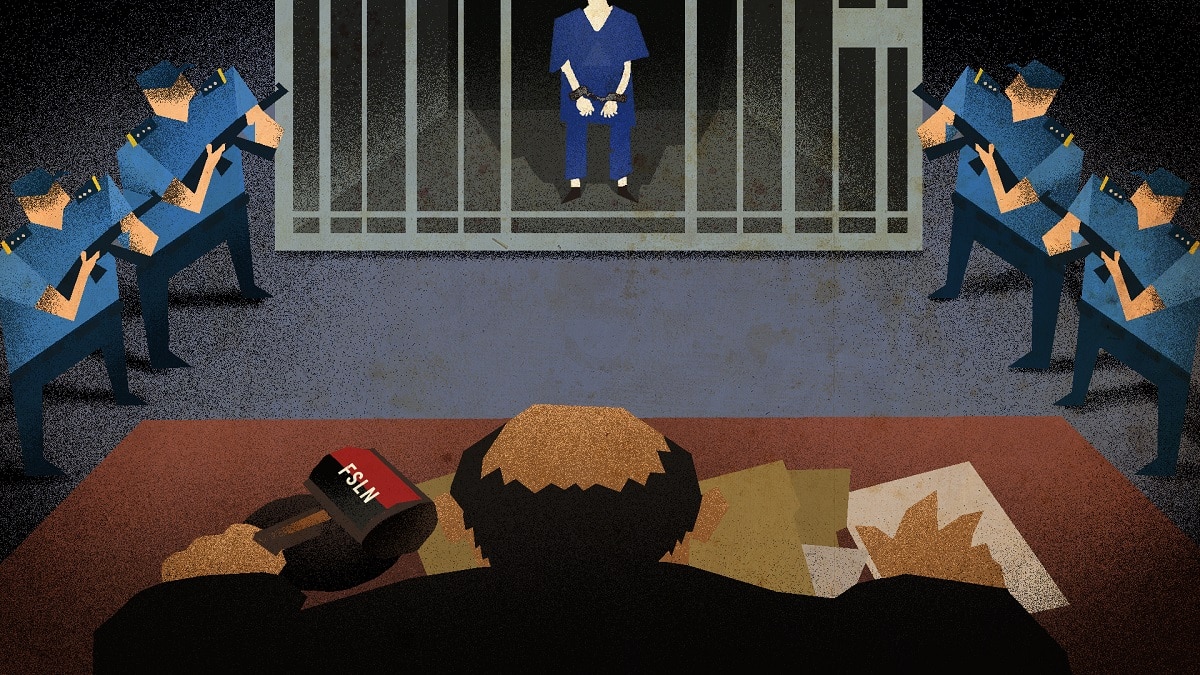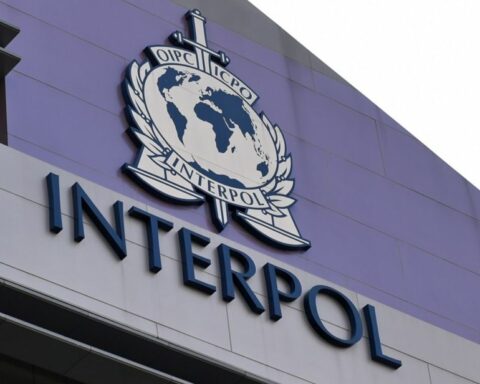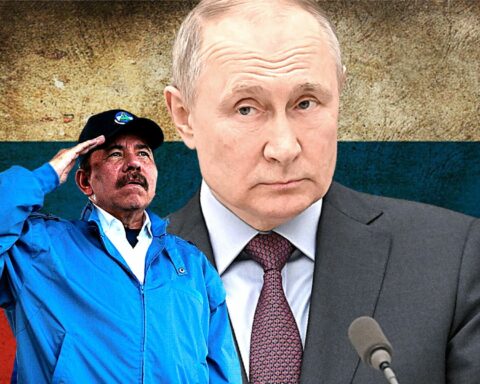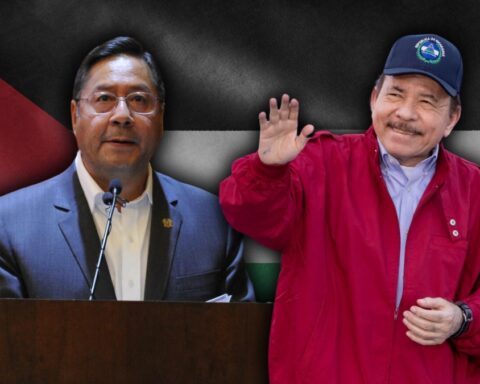Sports journalist Miguel Mendoza, who was imprisoned for 597 days, was questioned by officials from the Directorate of Judicial Assistance, known as El Chipote, about alleged “banking transactions” that he carried out on a bank account.
— Every Friday you pay $1,500 to one and $2,000 to another. There are other minor payments, how do you explain this? —the officers questioned during one of the interrogations.
The question that was intended to accuse him of illegal activities ended with an obvious response from the chronicler: “Easy, that account is in córdobas. And 1,500 are for gasoline and 2,000 are for supermarket purchases.”
Like Mendoza, there were other political prisoners who endured absurd questions during the repeated interrogations that they did during their imprisonment and also in the spurious trials where they were finally convicted. In these they insisted on the alleged financing of the United States, but they also questioned them about tattoos, kinship or symbols that they had on their bodies.
The sports writer has taken advantage of his Twitter account to relive those exhausting and absurd interrogations that he experienced in El Chipote. As he describes, they took him out at the time they wanted, tied his hands, lowered his head, and took him away for questioning.
Questioner: You are offensive on social media.
Me: who am I offending?
Questioner: You call Juan Carlos Ortega CAKE.
Me: Can’t you see he can’t read a paragraph without stuttering.
Questioner: You are offensive.
Me: If that’s offensive, what about the Rosario Murillo string?— Miguel Mendoza (@Mmendoza1970) February 28, 2023
On one occasion they told him: “It seems that you had taken all the measures, you prepared yourself before being arrested. We didn’t find anything in your house during the raid,” the surprised journalist replied: “What did they think they would find?” and the interrogator shamelessly replied: “You had nothing, not even the blue and white flag with the shield upside down.”
Lester Alemán’s relationship with Nayib Bukele
The student leader, Lester Alemán, was questioned about an alleged relationship he has with the president of El Salvador, Nayik Bukele. According to what he recounted in his interview with El País, the officers told him:
— We want to know how much money the Government of El Salvador has given you and how much training you have received, —.
Alemán, surprised by the absurdity of the question, lowered his mask and said: “Don’t you think, officer, that we look alike in our beards?”
However, for the 25-year-old released from prison, the most absurd thing was when they showed a photograph of him from when he was ten years old at the gates of the Disney theme park in the United States.
“The prosecutor said that there was proof of the beginning of my training by the CIA. The judge: ‘It is clear that this was a consummated plan from before the defendant was arrested’”, reminded German.
The enigma of the “Totus Tuus”
Yubrank Suazo was arrested for the second time in May 2022. Unlike the other political prisoners, he was taken to La Modelo prison, where he was held in El Infiernillo. However, he describes that before being transferred to the prison, he was interrogated in El Chipote.
“My last interrogation while in El Chipote was what my tattoo meant,” he says, pointing to his left forearm, on which the phrase “Totus Tuus” stands out.
The released prisoner explains that this phrase together with an anagram that he has tattooed are of religious origin. “Totus Tuus” means “All yours” and the symbol is an anagram or combination of the letters “m” and “TO” by the Virgin Mary, both were tattooed two years ago. However, for the officers of El Chipote it became an enigma.
“Everything revolved around what it meant, why he had done it to me, how much it had cost me, where he had done it, who else had it tattooed. Why, when I entered the gallery, Lester (German) had greeted me and told me Totus Tuus”, recalled in an interview with CONFIDENTIAL.
Alleged CIA training in Costa Rica
The political prisoner, Alex Hernández, who was a member of the political council of the Blue and White National Unit (UNAB), described that during the interrogations there were questions about an alleged training of the Central Intelligence Agency (CIA) of the United States.
“They were questions such as: why had I organized myself in the opposition against the Sandinista Front? Why had I betrayed my family’s Sandinista ideals? Why did I decide to sell myself to the empire? Why did I decide to receive training from the CIA in Costa Rica?” he explained.
Days before the 2022 elections, an interrogator showed him the video of Foreign Minister Denis Moncada announcing Nicaragua’s departure from the Organization of American States (OAS) and often asked him what he thinks will happen after this.
“I don’t know if these were personal questions from the interrogator or if there was really someone interested in knowing what we could visualize, but they were such ridiculous things that I took the opportunity to give the answers that they already knew,” he recalled.
Esperanza Sánchez, political prisoner released from Matagalpa, He pointed out that during the interrogations they asked him to reveal the names of other opponents and also questioned why he never covered his face in the demonstrations.
“I only exercise my right, because we supposedly live in a free country,” he replied. They also told her that her family had already forgotten her.
They told me that I destabilize the economy
Samantha Jirón, who was arrested when she was 21, still doesn’t understand like a young woman of her age is responsible for destabilizing the economy of an entire country. They told her that she misinformed the people about the pandemic and that “at some point it affected the donations they make to Nicaragua.”
In the spurious trial, where she was finally sentenced to eight years in prison, they put her to see the interviews she had given to international media. Even one of the damning pieces of evidence was a photo of an electoral ballot that had gone viral some time ago.
“They asked me obvious things: who are you, who finances you, who finances others, and who is that person, tell me where they live, is it you or is it them,” he recalled.
This type of political interrogation was repeated with the other prisoners. TO ex-guerrilla Dora María Téllez asked her: How much do the media pay you to give interviews? How do you get the interview with the international media? When do you call them? Have you received money from the United States? Have you talked to CIA agents? ?.
Félix Maradiaga, released from political prison and one of the seven pre-candidates who was arrested by Ortega, recounted that, during his 611 days in El Chipote, he was interrogated more than 400 times and the jailers made him “irrational questions”.
“They asked me, how much did we pay the people from the marches? Who were my financiers for the attempted coup? Some really nonsensical questions, but at some point also other very suspicious questions”described.
Maradiaga affirmed that during the interrogations they told him that he was a mercenary, “that my international advocacy before the United Nations Security Council, my trips to Geneva to denounce the cases in Nicaragua, were clearly actions of a foreign agent” and so “was going to be tried as a traitor”.








